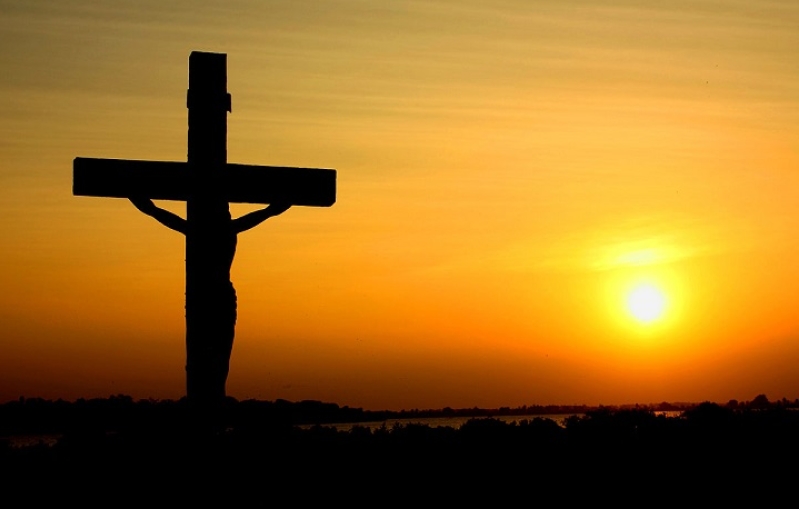
A man who was accused of blasphemy for claiming God was his father was found guilty through a speedy trial and was given capital punishment.
According to reports, the accusation came from certain people who were jealous of him because he had gained a large group of followers and because he often referred to his opponents as “false teachers.”
“Follow their instructions, but don’t imitate their life,” he once said of these teachers. “They don’t practice what they teach.”
The man, who hailed from an Asian country that lies near Egypt and Lebanon, was arrested and brought before the council for a trial. His accusers brought in false witnesses who testified against him.
Reports said the man was quiet throughout the trial and did not say anything. When the council asked him if he really claimed to be the Son of God, he spoke up.
“You have said so,” he said. “But I tell you, from now on you will see the Son of Man seated at the right hand of Power and coming on the clouds of heaven.”
The members of the council stood aghast at his words, saying what he uttered was proof enough of his blasphemy. They immediately found him guilty and sentenced him to death. They brought him before the governor who was overseeing the city.
The governor believed the man was innocent and wanted to spare him. However, when he brought him out before the people, the crowd clamored for capital punishment: crucifixion.
To appease the rioting, restless crowd, the governor had the man scourged—a command his men carried out so intensely that the man’s face could hardly be recognized afterward. His beard was pulled out and blood flowed from the deep cuts and wounds he sustained from the scourging.
The governor brought the man before the crowd once more. Even with his bleeding, beaten body, the people were not satisfied and still demanded that he be crucified. Fearing that tension would escalate, the governor gave in to the crowd’s demand.
According to reports, the governor’s men stripped the man of his clothes and gave him a scarlet robe. They spit on him, slapped his face and mocked him. They let him wear a crown made of thorns, pounding it onto his head until the thorns pierced his skull.
And as the man made the slow and painful walk toward the place where he was to be crucified—the hill of the skull—carrying his cross over his wounded, bruised body, the father he talked about watched from a distance and grieved for the pain and mockery his son was going through.
However, the father did not interfere even if he could, because he knew the pain and the crucifixion was necessary.
The man knew it, too. Shortly before the trial, he knelt before his father and asked him, pleading with tears, if it was possible not to go through it.
Yet he chose to obey his father and, knowing that he would be subjected to excruciating punishment and that his closest friends would abandon him at his moment of greatest need, he said, “not my will but yours be done.”
He knew why he had to suffer and why his father left him to suffer alone. It was not because of the religious leaders who accused him.
Rather, it because of the father’s love for mankind, who has strayed away from him. He wanted them back into his arms, but because of their sin, justice demanded that they be punished and separated from him for eternity.
An ancient prophet explained it well.
“Surely he has borne our griefs and carried our sorrows; yet we esteemed him stricken, smitten by God, and afflicted,” the prophet said. “But he was pierced for our transgressions; he was crushed for our iniquities; upon him was the chastisement that brought us peace, and with his wounds we are healed.”
“All we like sheep have gone astray; we have turned—every one—to his own way; and the Lord has laid on him the iniquity of us all.”
The man bore upon himself all the sins of the world so mankind would not have to bear the punishment for their sins. God, the Father, had forsaken his own son, his only son, and allowed him to take the fall out of his great love for sinners who do not deserve it.
“For God so loved the world, that he gave his only Son,” one of the man's followers wrote, “that whoever believes in him should not perish but have eternal life.”
And because of his great sacrifice, those believe in him and follow him receive forgiveness, mercy and grace—and the hope of an eternity with the glorious, loving Father.
So the man, named Jesus, was crucified at Golgotha and paid off the debt of all sinners.
“It is finished,” he said as he breathed his last.
Three days after his death, some of his followers were surprised when he appeared to them—alive.
At first, they could not understand it, but when the Scriptures were opened to them, they realized that Jesus had defeated the power of sin and death by the sacrifice of his righteous life on the cross, and God raised him from the dead.
Thus, Jesus redeemed mankind and restored their relationship with God. He also restored to them everything that had been destroyed by sin.
Every year, Jesus’ followers remember and celebrate how God sent his holy and righteous son to the world so they can be reconciled with the Father and be set free from the slavery of sin.
“Christmas” is a simple word that points to why Jesus had to come into the world, but as we celebrate it this year, let it be a reminder of God’s great love for mankind.






